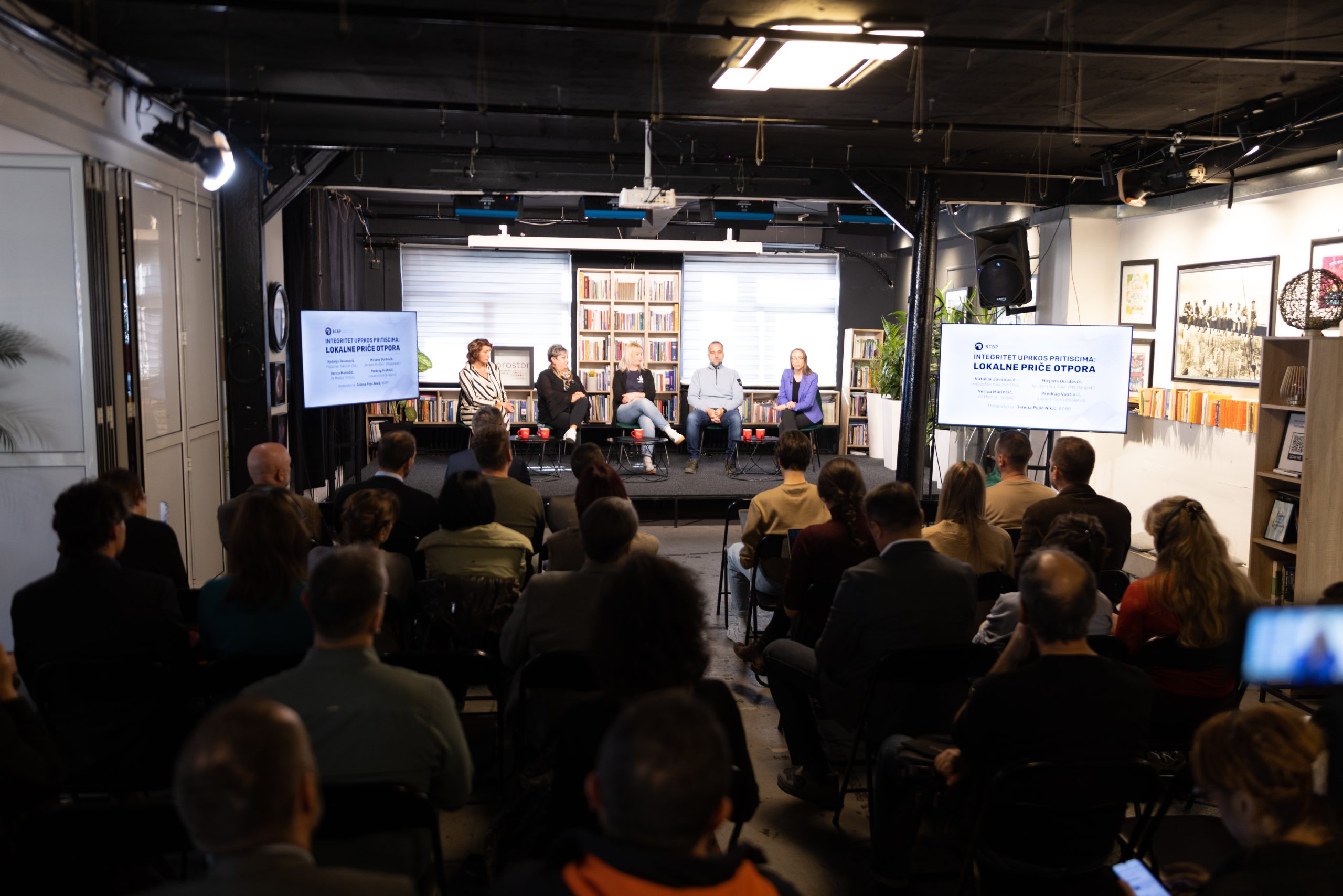SHARE
News:
The Western Balkans remains embedded in the Western security architecture
The half-day conference titled “Behind the Scenes of the Balkan Defence Policies,” organised by the Belgrade Centre for Security Policy, was the opportunity to present and discuss the main findings of the latest edition of the Balkan Defence Monitor.
The conference was opened by Igor Bandović, Director of BCSP, who greeted the participants and guests and thanked the Canadian embassy, which is supporting the project and the event.

In his opening remarks, the ambassador of Canada to Serbia, Montenegro, and North Macedonia, Giles Norman, pointed out the importance of the Balkan Defence Monitor because it provides information on hostile counter-narratives in the region, an overview of expenditures, strategies, and the position of women in the security sector.

“With the launch of the first edition of Balkan Defence Monitor, the Russian invasion had just started, and now it’s two years. The region has become an important strategic actor in Europe but also a point of vulnerability. As we move into 2024, the time has not only vindicated our support of the Balkan Defence Monitor but also increased its value”, the ambassador concluded.
The BCSP senior researcher and one of the authors of Balkan Defence Monitor 2024, Vuk Vuksanović presented the main findings of the report. “The key security providers are NATO and the US. If we look at parameters such as military exercise in Bosnia and Herzegovina most of them are with NATO or Member States.”

“Serbia is still the closest to fulfilling the 2% GDP defence spending threshold even though it’s not a NATO member, while other countries such as Albania and North Macedonia are trying to reach the NATO threshold,” he continued.
When it comes to defence expenditure, Vuksanović emphasised the structure of this spending. “If Serbia were a NATO member, it would be a good NATO member since a third of spending went on equipment.” “We have to remember that everybody talks about the quasi-arms race, but this process has been going on way before the war in Ukraine started. This is a multidimensional process – we should be realistic that most of the arms originate from Yugoslavia, so it’s not unnatural that after a couple of decades, defence capacities should be modernised. But this should be done in a less toxic fashion,” Vuk Vuksanović concluded.
One of the panelists was Srđan Cvijić, the president of the International Advisory Committee of the BCSP, who reminded everyone of the opinion polls the BCSP conducted in the 2000s when the support for Serbia joining NATO was close to 30%. “That’s more support than today,” Cvijić said. “We have strong anti-western propaganda now. We often confuse neutrality with independent foreign policy. It seems that our neutrality looks more like being the Trojan Horse to some Eastern countries,” he continued.

When asked about Kosovo not being part of the monitoring and if arming could provide some balance of the powers between Serbia and Kosovo, Cvijić replied: “We are striving for the EU membership, Kosovo included, but we are all using flammable political language. Arming the other side can provide some kind of balance, but the question is – why are we doing this? What are the plans for political leadership?”
He concluded by saying the population on both sides is not ready for conflict. “Can we have a consensus? Can we map a common threat that is destabilising all governments in the region? We should focus on that”.
“As someone who has worked with EU officials, defence was never their forte and European involvement in security has been through. It wasn’t until the invasion of Ukraine that the EU tried to up their ambitions when it comes to defence,” said Radmila Šekerinska, the former Minister of Defence of North Macedonia.

She pointed out it was North Macedonia where the EU sent its first mission – “We were probably the test case where there is cooperation between NATO and the EU. The results can be remarkable,” Šekerinska said. “I believe that heightened ambition of the EU is a good sign for the region and I believe we should be more involved in drafting that landscape,” she concluded.
When asked about Bosnia and Herzegovina spending less than one percent on defence, our panelist Harun Cero, the regional project manager at Friedrich-Ebert-Stiftung explained: “The political structure makes it difficult for Bosnia and Herzegovina to invest more in the state defence. Part of the country hopes that we are going to become a part of NATO and the EU”. Mr Cero added that in Bosnia and Herzegovina, each and every issue that you can work on together is a good thing, even the army. Military expertise in 2021 between Serbia and BiH was canceled. “Serbian army on the ground in Bosnia and Herzegovina was perceived as a threat,” he explained.

He emphasised the increased threats from cyber attacks in the Western Balkans region by saying we need to focus on it and have a regional approach when it comes to this issue. “The problem is that each country has its own set of cybersecurity regulations, and we need an alignment,” he added.
The conclusion of the conference is that the Western Balkans remains embedded in the Western security architecture. One should not discount the risk of communal intra-ethnic violence or localised clashes in locations like north Kosovo. However, the return to the full-fledged wars of the ’90s is remote.

This panel was followed by a closed-door discussion entitled “Russian Propaganda in the Western Balkans: Telegram Channels Case” where the BCSP visiting fellow from Russia, Polina Greisman, presented her study on the propaganda tools that Russia is using in the Balkans, particularly in Serbia and Montenegro.

RELATED

Date: 17.11.2025.
Author: Belgrade Centre for Security Policy
Belgrade Centre for Security Policy awards the 2025 "Lighthouse" Award to Irena Joveva, member of the European Parliament from the Republic of Slovenia.

Date: 10.11.2025.
Author: Belgrade Centre for Security Policy
The Integrity Network strongly condemns the appointment of Igor Žmirić as commander of the Special Anti-Terrorist Unit (SAJ), warning that this move turns one of Serbia’s elite police formations into the President’s personal guard, rather than a service for all citizens.

Date: 07.11.2025.
Author: Belgrade Centre for Security Policy
The Belgrade Centre for Security Policy (BCSP) has launched the Integrity Network initiative, bringing together respected individuals from various spheres of society—police officers, professors, journalists, lawyers, and activists—with the aim of monitoring, documenting, and raising public awareness about cases of state capture at the local level.


